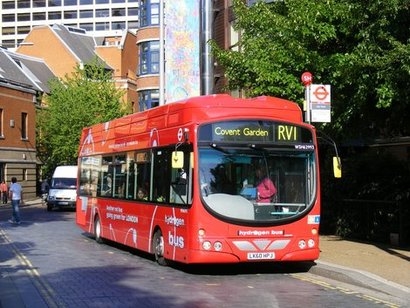
The review was announced yesterday (19th March 2019) and forms part of the government’s Future of Mobility urban strategy. It will explore regulations around new types of vehicles including e-scooters and e-cargo bike trailers, how sharing data can improve services by reducing congestion, and how journey planning and payment can be made more simple. This wide-ranging review will also explore modernising laws from the 1800s that are providing a barrier to innovation.
Alongside this, the government is launching a competition for up to 4 new ‘future mobility zones’, backed by £90 million, to test ideas to improve journeys for people across the country. With 80 percent of people in the UK now using smartphones, ideas will include smoother payment systems, better, more up-to-date travel information and the use of innovative forms of transport, making travel in towns and cities more convenient, more reliable and cheaper.
“We are at a potentially pivotal moment for the future of transport, with revolutionary technologies creating huge opportunities for cleaner, cheaper, safer and more reliable journeys” said Future of Mobility Minister, Jesse Norman. “Through this strategy the government aims to take advantage of these innovations; connecting more people and bringing big benefits we hope for both the economy and the environment.
Mike Hawes, SMMT Chief Executive, added that the automotive industry is responding to perhaps the most significant change since the invention of the car. Mobility as we know it is evolving, improving people’s day-to-day lives with implications for all of society. Today’s strategy offers important guidance on the objectives and principles underpinning the future of mobility in towns and cities, while giving industry scope to invest and innovate, developing exciting new services.
“We look forward to working closely with government and local authorities to shape the strategy’s implementation, helping to position the UK as a global leader in future mobility” Mr Hawes said.
The strategy, a key part of the government’s modern Industrial Strategy, also sets out 9 key principles that will guide government decision-making going forward, ensuring that emerging transport technologies are safe, accessible and green. These include being: safe, secure and guarded against cyber threats; accessible to older people and those with visible and non-visible disabilities; and in line with the government’s ambition for a zero-emission future.
In a further boost for sustainable transport, the government has announced the first winners of the Transforming Cities Fund and awarded £60 million to 10 city regions for schemes supporting low-carbon vehicles, cycling and walking projects, and smart traffic controls. The Transforming Cities Fund aims to invest in public and sustainable transport infrastructure in some of England’s largest city regions, encouraging an increase in journeys made by low carbon modes.
The government has also published its response to the Last Mile call for evidence, outlining a range of measures to support cleaner and more sustainable last mile deliveries. These include increasing the uptake of e-cargo bikes and e-vans. In addition, working with the Energy Saving Trust, the government is also now inviting expressions of interest for £2 million of funding to support the uptake of e-cargo bikes.
“This latest news from the Department for Transport demonstrates growing awareness of the need to regulate new transport methods – from bicycle trailers to e-scooters – given the anticipated national shift to electric vehicles over the next decade. That said, a future where the majority of transport is reliant on electricity will require more than new regulation. If everyone switched to electric vehicles tomorrow and charged them at the same time, perhaps when getting home from work, it would put the energy grid under tremendous strain. The transition to widespread e-mobility requires the right infrastructure and behaviors, and this must consider smart charging and how to encourage the right consumer charging practices.
“If the government delivers in its plans to work alongside the transport industry, vehicles are likely to become more innovative and reliable” said Louis Shaffer, Distributed Energy Segment Leader EMEA, Eaton, responding to the government’s announcement. “Smart policies will encourage investment in this space to spur on the UK’s shift to electric vehicles and the development of a smarter grid. This will go a long way to overhauling the transport sector in the UK and creating a cleaner, greener Britain. Industry leaders must think big as far as how – and where – to invest in EV charging infrastructure. To manage the increase in energy demand, market changes are needed which engender new forms of flexibility. This goes beyond planning a national network of charging facilities –meeting high levels of consumer ‘away from home’ EV charging demand requires charging facilities at the workplace, in public car parks and at the supermarket. Besides commercial and industrial ‘smart’ charging, leveraging technologies such as energy storage and demand response will support the growth of solar, wind and other green power sources, thus ensuring the UK’s shift to an affordable, flexible, renewables-led wholistic energy system which supports the coming leap in energy demand.”
For additional information:

